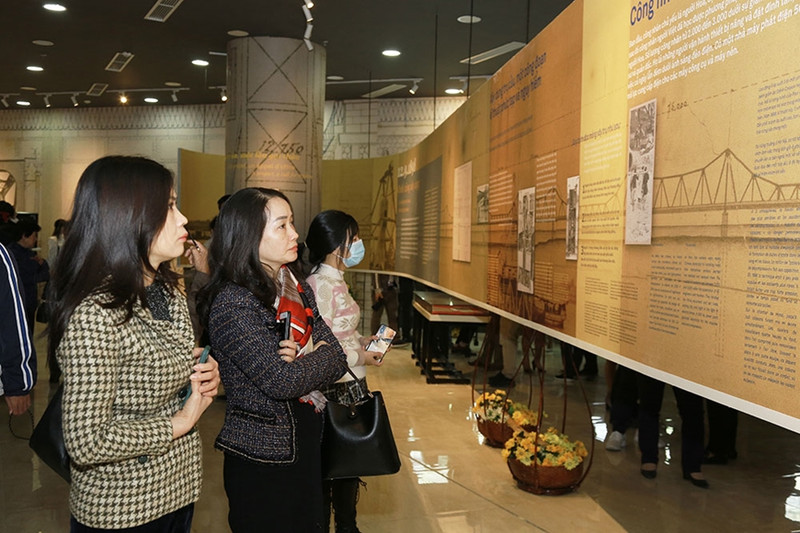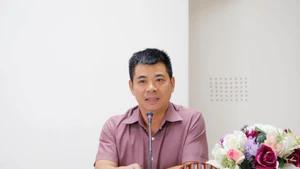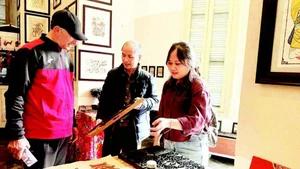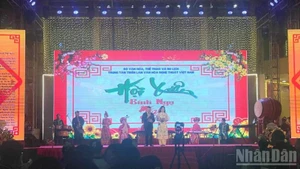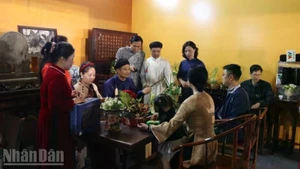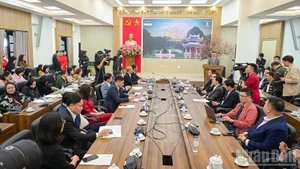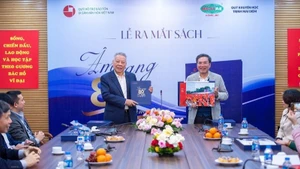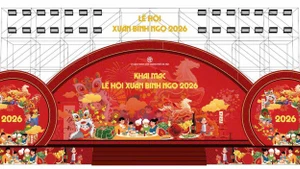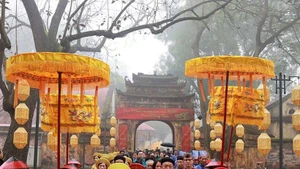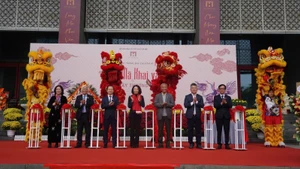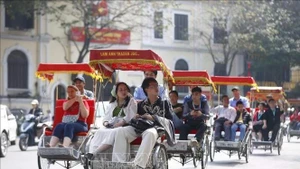At the exhibition, memories of the historic bridge were presented vividly through photos, paintings, and stories, shared by individuals, artists, journalists, and photographers, generating great interest from visitors.
The success of the exhibition proves that the sharing of memories and documents can effectively promote heritage values.
Facts have shown that in addition to photos, documents and objects preserved at museums and national archives, there are still many materials kept with families and art collectors as well as in the memory of historical witnesses.
There are letters, newspapers, photographs, and notebooks owned by individuals and families, which are not only evidence of significant milestones in their lives, but also reflections of an important period in national history.
However, some people have not fully understood or underestimated the value of the documents they are keeping, leading to the fact that many valuable documents have been damaged or lost.
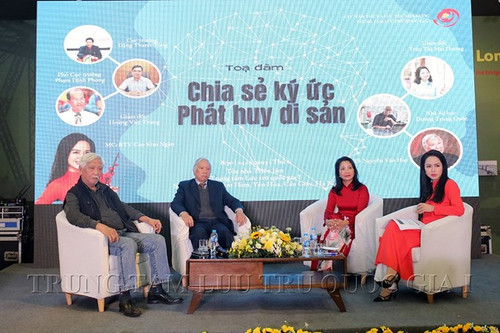 |
| Participants at the workshop 'Sharing memories, promoting heritage' (Photo: National Archives Centre No.1) |
Therefore, it is crucial to encourage the sharing of memories and documents, to benefit society and raise the community's sense of respect for its heritage. This is a need and an inevitable trend of modern society, especially in the context of the robust development of the fourth industrial revolution.
Participating experts at a recent workshop in Hanoi agreed that sharing memories and documents is the best way to sustainably promote cultural heritage values. For the younger generation, sharing memories and documents also contributes to enhancing their social responsibility, respect for heritage, and love for the motherland.
According to Assoc. Prof, Dr. Nguyen Van Huy, former director of the Vietnam Museum of Ethnology, museums and archives’ call for individuals and organisations to contribute their documents to exhibitions and displays, is the form of an inventory of cultural heritage in the community.
He said that to encourage people’s willingness to share their documents, museum and archivists must find attractive topics and themes for their exhibitions.
Participants at the workshop suggested many measures to encourage the sharing of memories and documents, such as organising events to honour those who share their collections and supporting the owners to restore their heritage.
Experts also note, that the concept of “sharing” should not be equated with “donating”. Accordingly, heritage sharing does not mean that the owners have to donate their collections to museums. Instead, there are many forms to share such as taking pictures, scanning, and digitalising the heritage.
According to the State Records Management and Archives Department of Vietnam, the Law on Cultural Heritage and the Law on Archives will be amended and supplemented, to facilitate the sharing of heritage and collective memories. The move will help to perfect the legal framework to safeguard and promote cultural heritage across the country.
